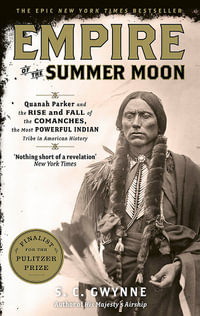In The Pulse of the Earth Adam Bobbette tells the story of how modern theories of the earth emerged from the slopes of Indonesia's volcanoes.
Beginning in the late nineteenth century, scientists became concerned with protecting the colonial plantation economy from the unpredictable bursts and shudders of volcanoes. Bobbette follows Javanese knowledge traditions, colonial geologists, volcanologists, mystics, Theosophists, orientalists, and revolutionaries to show how the earth sciences originate from a fusion of Western and non-Western cosmology, theology, anthropology, and geology.
Drawing on archival research, interviews, and fieldwork at Javanese volcanoes and in scientific observatories, he explores how Indonesian Islam shaped the theory of plate tectonics, how Dutch colonial volcanologists learned to see the earth in new ways from Javanese spiritual traditions, and how new scientific technologies radically recast notions of the human body, distance, and the earth. In this way, Bobbette decenters the significance of Western scientists to expand our understanding of the evolution of planetary thought and rethinks the politics of geological knowledge.
About the Author
Adam Bobbette is Lecturer in Political Geology at the University of Glasgow and coeditor of Political Geology: Active Stratigraphies and the Making of Life.
Industry Reviews
"Adam Bobbette's simultaneous making strange of Western science and making reasonable of animist thought give this book its charm and intellectual heft. I can't think of any other book that is as balanced in its treatment of Western science and non-Western thought and as insistent on putting them on a level playing field. At once ethnographic and global in scope, The Pulse of the Earth boldly defines and owns the concept of political geology every bit as much as it is a book about Java or a political volcano." -- Nigel Clark, coauthor of * Planetary Social Thought: The Anthropocene Challenge to the Social Sciences *
"Adam Bobbette's book is ambitious. To quote Goethe, it is 'endowed with magnificent sensory perception' and rubs against the patience of scholars who are more 'successful at ordering phenomena and putting them under the proper rubrics.' The Pulse of the Earth is a perilous and exciting book." -- Rudolf Mrazek, author of * The Complete Lives of Camp People: Colonialism, Fascism, Concentrated Modernity *
"Java is a worthy stage to host this intense combination of fiery volcanism, cosmology, and culture, and this work provides an accessible introduction to political geology in both concept and practice. . . . Highly recommended. Advanced undergraduates through faculty; professionals; general readers." -- J. Brewer * Choice *
"This book is a novel, deep-time riff on Java's famous volcanoes. . . . It is a must-read for aspiring political geologists, historians of Indonesia, and ethnographers of science. Anyone interested in the Indian Ocean will also find ample inspiration for thinking the sea as an inhabited and geologically animated extension of far-reaching polities." -- Lukas Ley * H-Environment, H-Net Reviews *

























